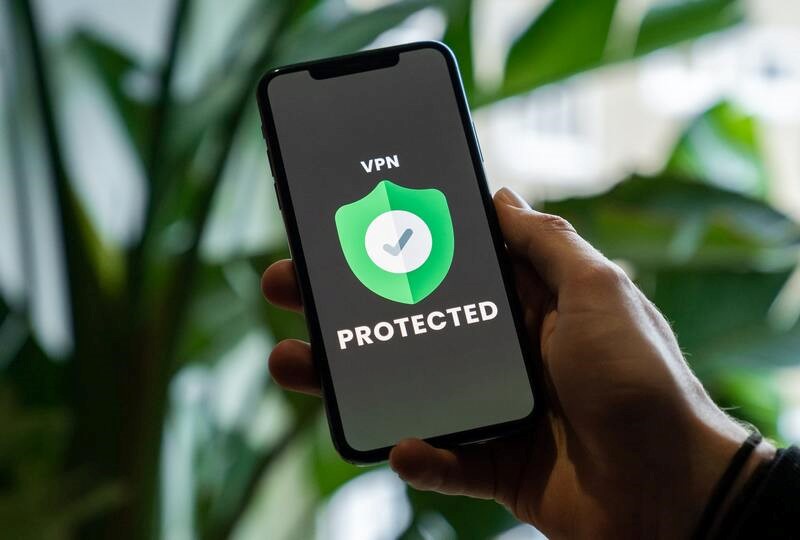There have been many colossal data breaches and hacks in the past, the biggest of which attacked some of the largest companies in the world to put millions of peoples' information at risk. It's not anything new, and yet, it's also not a problem that's going away any time soon.
On any given day, you can search "has been hacked" or "data breach," and you'll encounter at least one article that covers a story from the last month, if not the last few days. This was the case at the time of writing here, with a 100GB text file of over eight billion leaked and breached passwords being uploaded to a hacker forum on 9 June, and the US meat firm JBS getting its IT system hacked by ransomware on 31 May.
While the majority of the attacks target major companies as opposed to any specific members of the general public, it's always everyday people who get caught in the crossfire. So, here are some of the leading examples of why you need to be cautious regardless of where your data goes online as well as some top tips for staying safe in the modern technological age.
Some of the most prominent data breaches and hacks

Some of the most prominent data breaches and hacks
One of the most prominent data breaches in the history of the internet, likely being a catalyst to the demise of one of the biggest multimedia software platforms, belongs to Adobe in October 2013. Initial reports of hackers breaking into encrypted customer records - for log-in and credit card details - sat around at least 3 million. However, that number soon grew, with those 3 million users being hacked for card records, while some 150 million had their account details hacked.
In May 2014, colossal online marketplace eBay was put under investigation by European data authorities and states in the US for its data breach. This one saw as many as 145 million customers have their personal data and contact information stolen. As you would imagine, users flocked back to their profiles in an attempt to change their passwords, but just as the story hit the mainstream, the site's password reset tool stopped working.
Another high-profile hacking that proves that just about any online-connected service is susceptible to data breaches was that of the PlayStation Network in 2011. In this case, the hackers gained access to the personal data of some 77 million users. The group Anonymous claimed to have been throwing distributed denial of service attacks at the Sony servers in early April, but they halted their efforts roughly two weeks before another entity stormed in with one of the largest hacks in history at the time.
Taking measures to protect your data in the modern age

Taking measures to protect your data in the modern age
It seems as though people have become somewhat numbed to the idea of hacks and data breaches, perhaps because of how many large-scale ones there were in the 2010s and relatively lackluster mainstream press coverage of such instances these days. Still, though, to ensure that your profile isn't just another number in a potential future breach, there are several measures that you can take.
The first is possibly the most difficult to comprehend, and that's to switch your internet browser. Chrome has been bemoaned for years for its flippant use of user data, which has given rise to several privacy-centric browsers, including Brave, Firefox, and Tor. These help to keep your activity from being tracked and often have many customizable privacy and security features.
Another option to keep an eye out for when you're online and choosing to sign-up to a platform is two-step authentification. Passwords have been the standard for decades, but they're proving not to be sufficient in the modern landscape. So, 2FA has you prove your identity with two of three factors, with those being a combination of your password, linking some hardware (such as your smartphone), or using a biometric measure, such as a face scan or fingerprint. You can activate this on sites like Amazon, Mint, Whatsapp, and even Reddit.
In many cases, though, you'll struggle to find 2FA on sites that you want to use. Luckily, there are online services that provide key information to help ensure your safety and anonymity online. This is most clearly showcased with Arabian Betting online, which collates its findings of many websites to only recommend the safest ones. The sites are put under intense scrutiny, with elements like their trustworthiness and security measures brought to the fore for would-be Arabian gamblers. Often, these go hand-in-hand with a secure VPN.
The VPN (virtual private network) has evolved from a useful, small-scale business tool to an essential for those who want to ensure privacy and security online. The VPN essentially puts your activity through a heavily encrypted tunnel, ensuring that you can't be hacked while making it appear as though you're located elsewhere in the world. Naturally, people want to use these for free, with ProtonVPN Free and its unlimited data being the pick of the bunch.
Lastly, your payment method of choice can make the difference between keeping your bank details secure and having them susceptible to a hacker. While its prices can bounce with a single Tweet from the likes of Donald Trump, cryptocurrencies do offer a decent amount of anonymity because you don't use any personally identifying information. If crypto's a bit far-out for you, though, turn to trusted eWallets like PayPal or Venmo. They act as third-party intermediaries that stop your information from being sent, only informing the party being paid that they have received the money that you've commissioned to send through the service.
Unfortunately, hacks and data breaches aren't old news, but there are plenty of actions and services that you can adopt to enforce the security of your data online these days.




